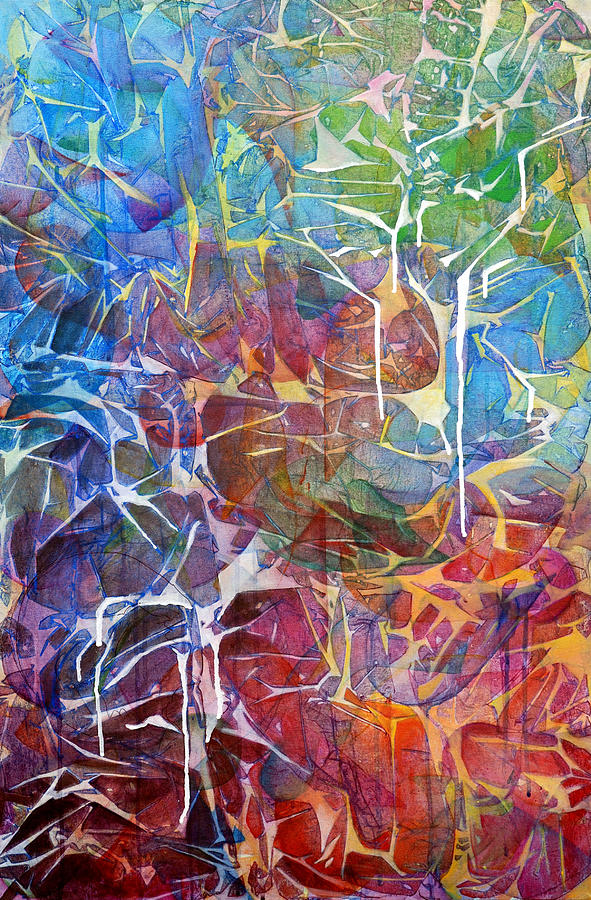Manna for the Wilderness
I often strive to find a way to say a “new thing” or to bring something forth in a “new light”. If you have read past posts, I’m sure you may have already noted successes and failures in this endeavor! This week I’d like to bring you a “new light” into our struggle as women in the Church offered to me rather than by me thanks to a reflection by Sr. Tracey Horan reflecting the LGBTQ and communities of marginalized genders, our partners in the struggle for inclusion and celebration in our own Church.
If Sr. Horan’s name and subject matter seem familiar to you, you probably, like me, read posts from New Ways Ministry. This one from June 19, is titled “How Can I Stay? Finding Manna in the Desert of Exclusion” In case you missed it, I offer excerpts as “manna” for us all.

Tracey Horan found herself asking what so many of us ask: “How can I stay?” when, as she was preparing to take her final vows as a Sister of Providence, she read the Vatican declaration that the Catholic Church was not to bless same sex unions. Her questions then were ours, too:
“After hearing that announcement, the questions came: how could I stay in an institution that made God’s love so small, so exclusive? How could I commit my entire life to an institution that hurt people I love with statements like this, that seemed to forget Jesus said, “Take this, all of you and eat it?”
Her dilemma intensified when she attended Mass with a relative who identified as LGBTQ. Again, we can relate to her description:
“Early on in the Mass, I could feel we might be in troubled waters. Something about the priest’s condescending demeanor had me on edge. My instinct was confirmed when we got to the homily, and the priest started condemning what he called a relativism that made people believe they could ‘love whoever they want and be whatever gender they want.’ I don’t remember much else, just that his rhetoric escalated, my blood was boiling, and I was so aware that his words were hurting my family member. She soon walked out, and a couple of us followed her.
I could not bring myself to receive the Body of Christ in that church. The Jesus I love and follow could not be present for me there, not in a nourishing way. This kind of eucharist, void of extravagant love, could not feed my spirit.”
What did feed her spirit was connecting with organizations like New Ways Ministry, Dignity, FutureChurch and other partners in Church renewal which have been actively confronting what she called, “the wilderness of exclusion” and actually affirming the “radical welcome” and “expanded love” she and all of us crave.
And, at a spiritual retreat she attended during this time, she found the ideal metaphor to express it all:
“The perfect symbol for the nourishment LGBT Catholics and allies can find in the midst of our journey toward justice and inclusion is desert manna. The simple, small perfection of a typical Sunday host does not quite fit. Desert manna acknowledges both the years of struggle and God’s faithfulness in feeding us. This manna, I wrote during my retreat, is more real and raw.”
Manna showered upon us by those who would feed us by including us versus one meager white host bestowed sometimes grudgingly, if at all, by those who would starve us by excluding us: what a wondrous image to express pain…and possibility.
And, if that were not enough, she even wrote a poem:
“This is now-or-never bread,
Bread of the moment,
That comes just when you think
The hunger will overwhelm you.
You cannot plan for this bread
Or control it
Or hoard it in case the hunger returns.
You can only savor this bread in the desert
After weeks of wandering
And wondering when it will come,
If it will come.
With the whisper, a persistent prodding
That lulls you foolishly forward
With a craving for manna
The bread you know
Will touch your lips
Just when all seems lost
You don’t yearn for the wilderness,
Only the dangerous,
Satisfying
Bread.”
She ended with: “May we who hunger for radical welcome gather around our dangerous, satisfying manna and find ourselves fed, even as we wander in wilderness”.
I end with “Thank you, Sister Horan.”
